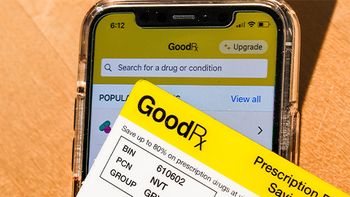
House hearing on pharma track-and-trace re-starts last year's debate
Lot-level tracking or item-level tracking: which side are you on?
The House Energy and Commerce Committee’s Health Subcommittee held a hearing on April 25 to restart the deliberations on a federal track-and-trace law, which would standardize drug wholesaler licensure and give FDA the authority to mandate a federal track-and-trace program to secure drug distribution in the US. The
Testimony from the House hearings quickly highlighted key differences among approaches to how closely the pharma supply chain should be secured. Relative to the existing California e-pedigree program, which requires interoperable data exchange and unit-level identification of packages, both the House and Senate versions specify only lot-level tracking initially, and leave the requirement to encode serial data on packages for a later date (up to four years from when the bill is enacted) and upwards of 10 years for supply chain participants to collect and verify these data. Representatives of HDMA, GPhA and NCPA were strongly for lot-level tracking only at this time; representatives of the National Assn. of Boards of Pharmacy, Healthcare Compliance Packaging Council, and Pew Charitable Trusts pushed for specifying at least a date for imposing unit-level tracking. "Clarity is critical," said Janet Woodcock, director of CDER at FDA. There is also a political dimension to this debate: Republican Congressmen generally are cautious about the ability of the supply chain to implement unit-level traceability, while Democrats are generally pushing for unit-level specifications.
It’s also worth noting that there will be explicit licensure requirements for wholesalers, repackagers and third-party logistics providers. Finally, both draft documents have very explicit language stating not only that federal law, if enacted, will supersede state law, but also that “no State or political subdivision of a State may establish or continue in effect any requirements for tracing drugs through the distribution system …which are inconsistent with, more stringent than, or in addition to, any requirements applicable under this Act…”
However this debate plays out, there was reference to a goal of having a bill voted out of Congress and on the President’s desk before the August recess. It’s going to be a noisy summer.
Newsletter
Stay ahead in the life sciences industry with Pharmaceutical Commerce, the latest news, trends, and strategies in drug distribution, commercialization, and market access.




